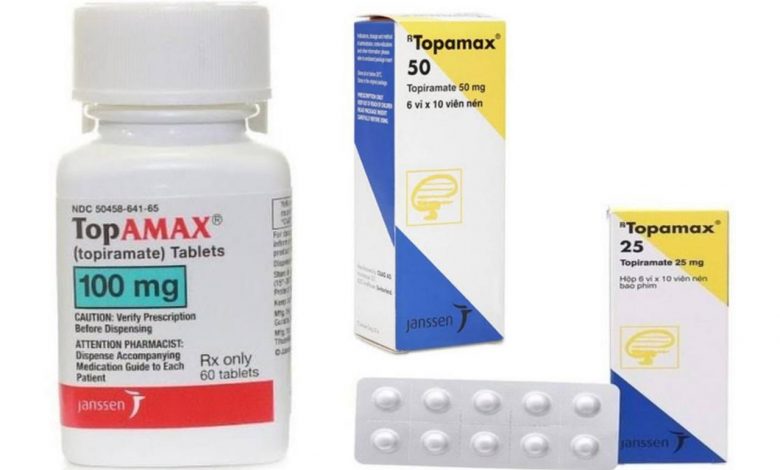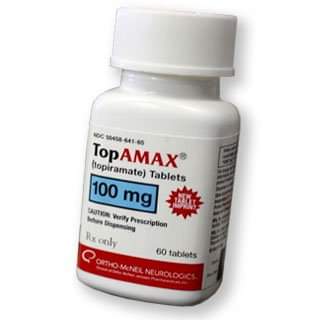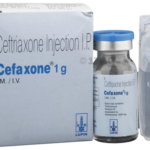Topamax (topiramate) Uses, Dosage, Side Effects, Interactions, FAQ

What Is Topamax And What Does It Treat?
Topamax is a brand of topiramate a class of medications called anticonvulsants that works in the brain and is sometimes used in patients with bipolar disorder (also known as manic depression). It is approved for the treatment of seizures (epilepsy) in adults and children in combination with other anticonvulsants and for preventing migraine headaches in adults. Bipolar disorder involves episodes of depression and/or mania.
Bipolar disorder requires long-term treatment. Do not stop taking Topamax even when you feel better. With input from you, your health care provider will assess how long you will need to take the medicine. Missing doses of Topamax may increase your risk for a relapse in your mood symptoms.
Is Topamax a narcotic?
Topamax is not classified as a controlled substance under the U.S. Controlled Substances Act (CSA). Topamax is an anticonvulsant (seizure) medication but is also prescribed for other conditions such as the prevention of migraine.
How Topamax works
Although the precise mechanism of action of Topamax is unknown, there is sufficient evidence to explain the drug’s anticonvulsant activity. Topamax blocks voltage-gated sodium channels, which most likely leads to control of sustained depolarizations during seizures. Topamax reduces membrane depolarization by AMPA/Kainate receptors. Topamax enhances GABA (A) receptor activity, which enhances inhibitory effects.
Topamax is a weak inhibitor of carbonic anhydrase; acidosis in the brain has partial protection against seizures by downregulating NMDA receptor activity. Overall, the effect of Topamax on these channels is the leading explanation of the antiepileptic action of the drug.

How does Topamax make you feel?
Topamax can sometimes cause personality changes that affect the way people behave, react, feel, or interact with others. For example, the drug may cause agitation, aggression, or other behavior problems. Topamax may also cause mood changes, such as anxiety, mood swings, and depression.
How Should I Take Topamax?
Topamax is usually taken one or two times a day with or without food.
Typically, patients begin at a low dose of medicine and the dose is increased slowly over several weeks.
The dose usually ranges from 25 mg to 400 mg. Only your health care provider can determine the correct dose for you.
Do not split or chew tablets as they have a bitter taste.
Sprinkle capsules: Swallow whole or sprinkle onto food, such as applesauce or pudding and eat immediately. Do not chew the sprinkle capsule or contents.
Extended-release capsules: Swallow whole. Do not sprinkle on food, chew, or crush capsules.
Use a calendar, pillbox, alarm clock, or cell phone alert to help you remember to take your medication. You may also ask a family member or a friend to remind you or check in with you to be sure you are taking your medication.
What Happens If I Miss A Dose Of Topamax?
If you miss a dose of Topamax, take it as soon as you remember, unless it is closer to the time of your next dose. Discuss this with your health care provider. Do not double your dose or take more than what is prescribed.
What Happens If I Overdose With Topamax?
If an overdose occurs, call your doctor or 911. You may need urgent medical care. You may also contact the poison control center at 1-800-222-1222.
A specific treatment to reverse the effects of Topamax does not exist.
What Should I Avoid While Taking Topamax?
Avoid drinking alcohol or using illegal drugs while you are taking Topamax. They may decrease the benefits (e.g., worsen your symptoms) and increase adverse effects (e.g., sedation, dizziness).
Dangerous side effects or increased seizures may occur. Increased sleepiness or dizziness may occur if you drink alcohol while taking topiramate.
What else should I avoid while taking Topamax?
Avoid getting dehydrated. Drink plenty of fluids when taking Topamax. Also, avoid becoming overheated or dehydrated in hot weather. Topamax can increase body temperature and decrease sweating, leading to life-threatening dehydration (especially in children).
It is also important to drink plenty of fluids when taking Topamax to decrease your chances of getting kidney stones.
Topamax may cause drowsiness, dizziness, blurred vision, or impair your thinking or reactions. Avoid driving or operating machinery until you know how Topamax will affect you.
Avoid the use of a ketogenic or “ketosis” diet (high in fat, low in carbohydrates) while you are taking Topamax.
Also avoid activities that could be dangerous if you have an unexpected seizure, such as swimming or climbing in high places.
Do not stop taking Topamax or change your dose without first talking to your doctor. Stopping suddenly or changing your dose on your own can cause serious health problems and may cause or worsen seizures.
All women of childbearing age should talk to their doctors about using other treatments instead of Topamax. Talk to your doctor before you become pregnant. If you take Topamax during pregnancy, your baby has a higher risk for birth defects called cleft lip and cleft palate. These defects can begin early in pregnancy, even before you know you are pregnant.
Also, talk to your doctor about the best form of birth control for you to use. If you are not pregnant or planning to become pregnant, use effective birth control to prevent pregnancy while taking Topamax.
It may not be safe to breastfeed a baby while you are using this medicine. Ask your doctor about any risks.
This is not all the information you need to know about Topamax (Topamax) for safe and effective use and does not take the place of talking to your doctor about your treatment.
What Are The Possible Side Effects Of Topamax?
Common side effects
• Thinking problems: slow thoughts, trouble finding the right word, confusion, trouble concentrating
• Feel clumsy, unsteady, dizzy, tired, weak, or nervous
• Loss of appetite, change in the way food tastes, weight loss, stomach pain
• Numbness or tingling sensation in limbs and extremities
Rare/serious side effects
• Mood or behavior changes, such as aggression, agitation, apathy, irritability, and depression
• Hearing problems (ringing, buzzing, and decreased hearing)
• Fever, sore throat, upper respiratory infection
• Itching, nosebleeds, pale skin, blisters, allergy (skin rash, swelling, troubled breathing), yellow eyes or skin, easy bruising, and bleeding
• Topamax may cause eye problems. Serious eye problems include a sudden decrease in vision with or without pain/redness and increased pressure in the eye. These eye problems can lead to permanent vision loss if not treated.
• Serious skin reactions (Stevens-Johnson Syndrome) have been reported with the use of Topamax. At the first sign of a rash, Topamax should be discontinued unless the rash is clearly not drug-related.
• Topamax may cause decreased sweating and increased body temperature. People, especially children, should be watched for signs of this — especially in hot climates. Some people may need to be hospitalized for this condition.
• Topamax can increase the level of acid in your blood (metabolic acidosis). If left untreated, metabolic acidosis can cause brittle or soft bones, kidney stones, can slow the rate of growth in children, and may possibly harm your baby if you are pregnant. Metabolic acidosis can happen with or without symptoms. Sometimes people with metabolic acidosis will feel tired, not feel hungry, feel changes in heartbeat, or have trouble thinking clearly.
• Studies have found that individuals who take antiepileptic medications, including Topamax, have suicidal thoughts or behaviors up to twice as often as individuals who take placebo (inactive medication). These thoughts or behaviors occurred in approximately 1 in 500 patients taking the antiepileptic class of medications.
How Long Can You Stay On Topamax?
Generally, it can take 2 to 3 months for Topamax to fully work. Once your condition is under control, you’ll usually need to keep taking Topamax for many years. Is it safe to take long term? Yes, many people take Topamax safely for many months or years.
What drugs can interact with Topamax?
Topamax can cause drug interactions with other medicines and cause side effects. There may be certain medications you should avoid while taking Topamax. Do not start a new prescription or over-the-counter medicine without talking with your healthcare provider first.
Tell your healthcare provider if you take:
- Valproic acid (brand name examples: Depakote). Taking Topamax when you are also taking valproic acid can cause a drop in your body temperature to less than 95 degrees F (35 degrees C), or can cause tiredness, confusion, or coma. Taking these medicines may also cause raised levels of ammonia in your blood.
- Zonisamide (brand name example: Zonegran). Using zonisamide with Topamax can cause metabolic acidosis, a condition that causes high levels of acid in your blood. Combining these medicines may increase the risk and severity of this side effect.
- Glaucoma medications, including eye drops.
- Birth control pills. Topamax may make your birth control pills less effective. Tell your doctor if you experience any breakthrough bleeding (menstrual bleeding changes) if you are taking birth control pills and Topamax. Ask your doctor about using a non-hormonal birth control (condom, diaphragm, cervical cap, or contraceptive sponge) to prevent pregnancy.
- Medicines that impair or decrease your thinking, concentration, or muscle coordination.
Not all possible drug interactions are listed above. This list is not complete and other medicines can affect Topamax. Tell your healthcare provider about all the medicines you take, including prescription and over-the-counter (OTC) medicines, vitamins, and herbal supplements.
Take a list of your medicines to your appointments so your doctor can review for any possible drug interactions. You can also take your medicine bottles (including OTC medications) with you and show them to your doctor if that is easier.
Frequently Asked Questions About Topamax
Can I take vitamin C with Topamax?
No interactions were found between Topamax and Vitamin C.
When should you not take Topamax?
People with chronic kidney disease conditions should avoid taking this medication as long-term side effects of Topamax are more common among people with kidney conditions.
Can you take vitamin D with Topamax?
No interactions were found between Topamax and Vitamin D3. However, this does not necessarily mean no interactions exist. Always consult your healthcare provider.
What does Topamax do to your brain?
Topamax works by reducing the spread of seizure activity in the brain and restoring the normal balance of nerve activity. For epilepsy – brain cells normally “talk” to each other using electrical signals and chemicals. Seizures can happen when the brain cells are not working properly or working faster than normal.
What painkillers can I take with Topamax?
Paracetamol and most other over-the-counter medicines can be safely taken with Topamax. Over-the-counter medicines are those that can be bought without a prescription.
Why is Topamax considered a hazardous drug?
Topamax can increase the level of acid in your blood (metabolic acidosis). This can weaken your bones, cause kidney stones, cause growth problems in children, or harm an unborn baby.





